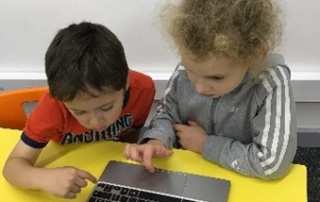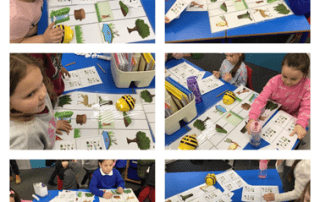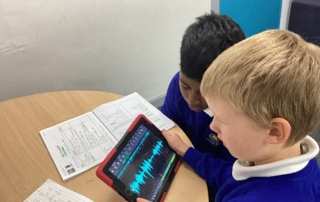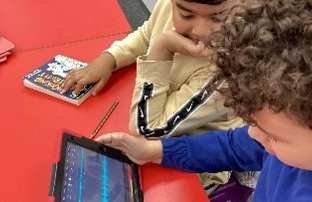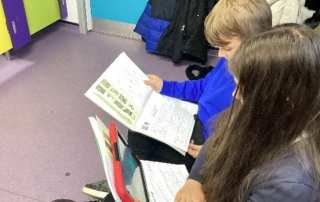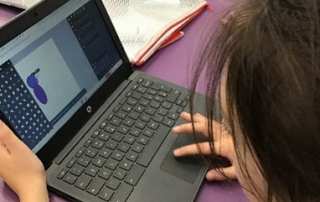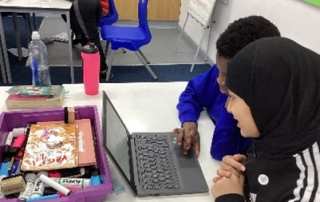Computing intent
Computing at Fosse Mead Primary Academy is underpinned by the national curriculum and our 6 school values.
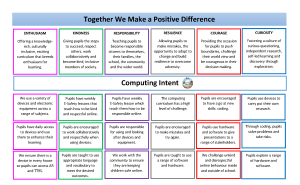
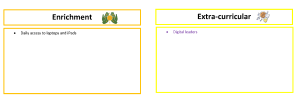
Subject Policy
At Fosse Mead Primary Academy, we follow the NCCE curriculum for Teach Computing.
Teach Computing Curriculum Map and Progression KS1 and KS2
Click here to see more detail at the Teach Computing website: Teach Computing
Subject Leader
K. Carmichael
Impact
Year 1
Year 1 started the year with a unit on Computing Systems. The unit looked at what technology is, where we have encounter it and how we use it. They have looked at how to use a mouse and a trackpad before spending a couple of weeks learning how to use keyboards – this will set the foundations for their access to computing as they progress through school and with homework at home.
Year 2
Year 2 have been learning about the importance of giving instructions in sequences and using logical reasoning to predict outcomes. We were able to give commands in different orders to investigate how the order affects the outcome. By designing our own algorithms and then testing them we also explored how to design a program and debug them.
Year 4
Year 4 have been learning how to identify the input device (microphone) and output devices (speaker or headphones) that are required to work with sound digitally. As part of this unit, they discussed the ownership of digital audio and the copyright implications of duplicating the work of others. The outcome of the unit was to record themselves and produce a podcast, editing their work, adding multiple tracks, and opening and saving the audio files.
Year 4
Year 4 have been learning how to identify the input device (microphone) and output devices (speaker or headphones) that are required to work with sound digitally. As part of this unit, they discussed the ownership of digital audio and the copyright implications of duplicating the work of others. The outcome of the unit was to record themselves and produce a podcast, editing their work, adding multiple tracks, and opening and saving the audio files.
Year 4
Year 4 have been learning how to identify the input device (microphone) and output devices (speaker or headphones) that are required to work with sound digitally. As part of this unit, they discussed the ownership of digital audio and the copyright implications of duplicating the work of others. The outcome of the unit was to record themselves and produce a podcast, editing their work, adding multiple tracks, and opening and saving the audio files.
Year 5
Year 5 have been forming vector drawings, using different tools to help them create their images using shapes and lines. They learnt that each individual element in the drawing is called an object. They then began to layer their objects and learnt how grouping and duplicating them helped to create more complex pieces of work.
Year 6
Year 6 have been exploring how data is transferred over the internet. They have been examining how the internet enables online communication and collaboration. Working together they created online shared projects and assessed the different methods of communication. Finally, they discussed how we need to communicate responsibly and contemplated what should and should not be shared on the internet.

